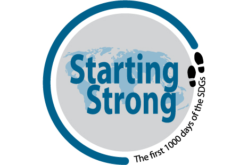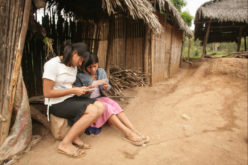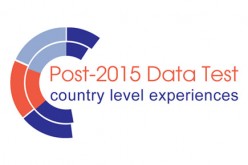Latin America’s agenda post-2015: reduce inequality
This post has been written by Andrea Ordóñez, Southern Voice’s Research Coordinador. She is based in Ecuador and discusses what Latin America might bring to the post-2015 debate.
I am writing this blog from Lima, the capital of Perú, and one of the fastest growing cities in Latin America. But, as with many other cities in the region, its booming economy is accompanied by high levels of inequality and other social issues. Lima also hosted the last session of the Economic Commission for Latin America and the Caribbean (ECLAC) that brought together Ministers from the region. In this session, the region’s official position for the post-2015 agenda was drafted: it focuses on inequality.
This is no coincidence – Latin America is the most unequal region in the world; you could say, we are experts on the matter. The ECLAC’s document ‘Compacts for Equality’ reviews the connections between inequality and other aspects of development. It concludes by mentioning seven points that countries in the region agree on pertaining to the post-2015 development agenda:
1. The remaining achievement gaps in the Millennium Development Goals must be closed.
2. The situation in the region is changing, and there are emerging challenges to be met in such areas as energy, demographics, urbanization, natural disasters and public safety.
3. A new development model is needed: one that is based on structural change for equality and environmental sustainability and can close existing gaps in production and society.
4. The minimum threshold of social well-being has risen, which calls for an agenda with the principle of equality at its core and social policies with universal coverage.
5. Policy and institutions matter, which means tackling key issues in terms of regulation, oversight, financing and governance.
6. A greater range of ways of measuring progress is needed, in addition to GDP indicators, in order to inform decision-making with respect to sustainable development paths.
7. Efforts have to be made to build a global system of governance for development. This process should provide genuine opportunities for socially participatory decision-making. Priority should be placed on achieving global policy coherence in the areas of sustainable development, fair trade, technology transfer, international financial reform and new financing mechanisms, advocacy of South-South cooperation and the strengthening of mechanisms for encouraging the participation of all members of society.
These agreements portray a region that is looking critically at itself and its role in the global context. It also illustrates the challenges of being middle-income countries. As ECLAC’s Executive Secretary, Alicia Bárcena, summarised, “It is not only a matter of growing for equality but also equality for growth, because social progress is not limited to social policies – and we need macroeconomics for development”.
Going back to the time when the HLPR was published, it is worth noting that one of the key discussion points was that inequality was not stated as a goal although it was extensively mentioned throughout the report. The draft zero of the SDGs takes a different approach: Goal 10 explicitly states “Reduce inequality within and among countries.” This is likely more in line with Latin America’s position on the issue. It is expected, therefore, that Latin America will guard and maintain these goals in the negotiations.
Why will Latin America keep a focus on inequality? Based on its one experience, Latin American specialists seem to see now inequality not only as a negative side-effect of policies, but also as a major obstacle in progressing with a sustainability agenda. In this sense, the focus on inequality is strategic: giving visibility to the issue internationally is critical as countries progress on their own policies.
Promoting policies to reduce inequality is not easy. The redistribution of wealth and power is not always a win-win situation, and some may see their interests affected. In this regard, a global objective on inequality may give more leverage for policies that may otherwise be considered unviable. One of the key lessons from the MDGs is that they were strong communication tools. In the same vein, a strong inequality goal might help governments gain national buy-in for tough policies.
Among these difficult policies are those on how to finance the future agenda. Countries in Latin America have seen a consistent reduction in ODA paired with a growing significance of domestic resources to finance development. Of these resources, the rents from natural resources have been a significant window of opportunity to finance development, but they are not everlasting. In this context, wider and, at the same time, more progressive taxation systems are required. This will be required not only to tackle inequality but also to finance the development agenda.
Ibrahma Hathie has just reflected on the Common African Position, showing how the global south is becoming a much more active part of the post-2015 debate. In the future months we will see how the debates evolve, and how the different stances are negotiated to fit the needs of various regions.
1,519 total views, 1 views today







